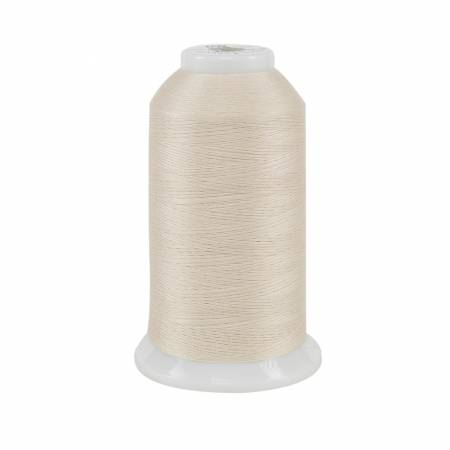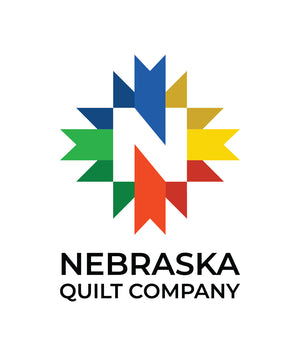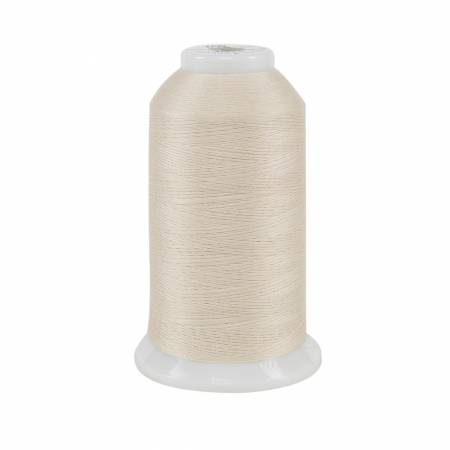polyester, quilt, cotton, sewing, bobbin, sewing machine, lint, embroidery, machine, seam, fiber, cart, email address, longarm quilting, embroidery thread, yarn, textile, sewing needle, overlock, silk, machine embroidery, appliqué, heat, rayon, nylon, wax, wool, upholstery, topstitch, button, sashiko, weight, add to cart, lint free cotton, store locator, lint free, trilobal, personal information
What is 50 wt thread used for?
The uses of 50 wt thread are versatile in quilting and sewing projects. It is ideal for fine stitching, creating detailed designs, and piecing fabrics together, providing strength and precision in various textile applications.
What needle should I use with 50 wt thread?
The needle you should use with 50 wt thread is typically a size 80/12 universal needle. This size provides a good balance for most quilting and sewing projects, ensuring smooth stitching and minimizing thread breakage.
What size sewing machine needle for 50wt thread?
The appropriate sewing machine needle size for 50wt thread is typically a 75/11 or 80/12. These sizes work well to ensure smooth stitching and prevent needle breakage while using this finer thread.
Can 50 wt thread be used for embroidery?
50 wt thread can indeed be used for embroidery. Its fine structure allows for detailed stitching, making it suitable for intricate designs without overpowering the fabric.
Is 50 wt thread suitable for machine quilting?
50 wt thread is indeed suitable for machine quilting. Its fine diameter allows for precise stitching while providing strength, making it an excellent choice for detailed quilting projects.
What fabrics work best with 50 wt thread?
The fabrics that work best with 50 wt thread include cotton, linen, and rayon, as they provide a smooth finish and allow for detailed stitching, making them ideal for quilting and sewing projects.
How does 50 wt thread compare to 40 wt?
The comparison between 50 wt thread and 40 wt thread reveals that 50 wt is finer and thinner, making it ideal for detailed sewing and quilting projects, while 40 wt offers more strength and is better suited for heavier fabrics.
Can I use 50 wt thread for hand sewing?
The use of 50 wt thread for hand sewing is entirely appropriate. It offers a fine yet strong option, making it suitable for detailed work and adding a polished finish to your projects.
What types of needles for 50 wt thread?
The types of needles suitable for 50 wt thread include universal needles, microtex or sharp needles, and quilting needles. These options ensure precise stitching and optimal performance when using this finer thread for quilting and sewing projects.
Is 50 wt thread stronger than 60 wt?
The strength comparison between 50 wt and 60 wt thread indicates that 50 wt thread is indeed stronger than 60 wt thread. This is because a lower weight number signifies a thicker, more durable thread, making 50 wt suitable for a range of sewing applications.
What projects are best for 50 wt thread?
The best projects for 50 wt thread include quilting, piecing, and detailed sewing tasks. Its fine weight provides precision and a smooth finish, making it ideal for intricate designs and lightweight fabrics.
Can you use 50 wt thread for piecing?
50 wt thread is suitable for piecing as it offers a fine balance between strength and minimal bulk, allowing for precise seams and reducing the risk of fabric distortion.
How to store 50 wt thread properly?
Proper storage of 50 wt thread involves keeping it in a cool, dry place away from direct sunlight, ideally in a spool holder or container that prevents tangling and minimizes exposure to dust and moisture.
Can I mix 50 wt and 40 wt thread?
Mixing 50 wt and 40 wt thread is possible, but it may affect the overall tension and stitch appearance. It's best to conduct a test stitch before using them together in your project.
What tension settings for 50 wt thread?
The appropriate tension settings for 50 wt thread typically range from 3 to 5 on most sewing machines. Adjust based on fabric type and desired stitch quality for optimal results.
How to choose thread color for 50 wt?
Choosing thread color for 50 wt involves considering the fabric's color and pattern, as well as the project’s overall aesthetic. Opt for a shade that either complements or contrasts with your fabric to achieve the desired effect.
Is 50 wt thread good for topstitching?
50 wt thread is excellent for topstitching as it provides a fine balance of strength and flexibility, allowing for clean and precise stitches while enhancing the overall finish of your project.
What are benefits of using 50 wt thread?
The benefits of using 50 wt thread are that it provides a fine, strong, and lightweight option suitable for detailed quilting and sewing projects, ensuring a smooth stitch appearance and versatility across various fabric types.
Can 50 wt thread be double-threaded?
50 wt thread can be double-threaded. This technique enhances strength and coverage, making it suitable for projects requiring added durability and a more pronounced stitch line.
What spool size fits 50 wt thread?
The appropriate spool size for 50 wt thread typically includes standard sizes such as small (approximately 50 yards) and medium (approximately 200-300 yards) spools. Always check your sewing machine's requirements for compatibility.
Is cotton or polyester better for 50 wt?
The debate between cotton and polyester for 50 wt thread centers on their specific qualities. Polyester is generally better for durability and strength, making it ideal for various sewing applications, while cotton offers a softer finish and is more breathable, which may suit quilting preferences.
How to troubleshoot 50 wt thread issues?
Troubleshooting 50 wt thread issues involves checking for proper tension, ensuring your needle matches the thread weight, using the correct needle size, and verifying that your thread path is clear of any obstructions.
Can I wash quilts made with 50 wt thread?
Quilts made with 50 wt thread can be safely washed. To maintain their quality, use a gentle cycle with cold water and mild detergent, and avoid harsh chemicals or bleach.
Is 50 wt thread suitable for delicate fabrics?
50 wt thread is indeed suitable for delicate fabrics. Its fine texture allows for precise stitching without overwhelming lightweight materials, making it an excellent choice for quilting and sewing projects involving fragile textiles.
When to use 50 wt thread in projects?
The appropriate times to use 50 wt thread in projects are for fine piecing and detailed quilting, as its weight provides strength without added bulk, making it ideal for delicate fabrics and intricate designs.
What is the origin of 50 wt thread?
The origin of 50 wt thread stems from its classification as a weight measure for thread, primarily made from polyester and cotton. This standard is widely used in quilting and sewing for its versatility and durability.
Where to buy quality 50 wt thread?
You can buy quality 50 wt thread at Nebraska Quilt Company, which offers a range of high-quality options, including their 402 Pearl 50wt So Fine Thread, perfect for quilting and sewing projects.
What techniques use 50 wt thread effectively?
The techniques that use 50 wt thread effectively include fine quilting, detailed piecing, and appliqué work, where the weight allows for precision without bulk, ensuring clean, strong seams and a polished finish.
How to match 50 wt thread to fabric?
Matching 50 wt thread to fabric involves considering the fabric's weight, texture, and color. Choose a thread that complements the fabric's characteristics while ensuring it provides the right strength and flexibility for your quilting or sewing project.
Can I use 50 wt thread for quilting designs?
Using 50 wt thread for quilting designs is highly suitable. This weight provides excellent stitch definition and works well for both detailed quilting and piecing, ensuring your designs maintain clarity and precision.




